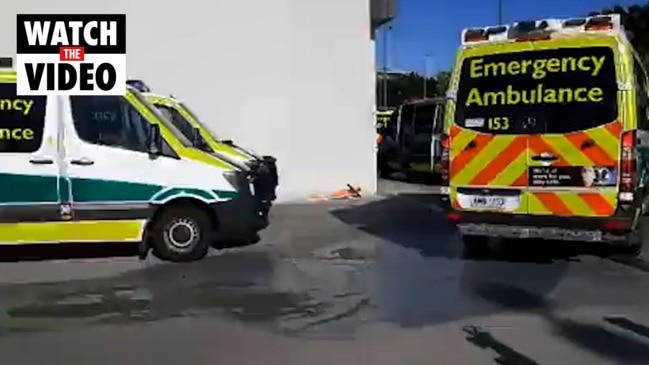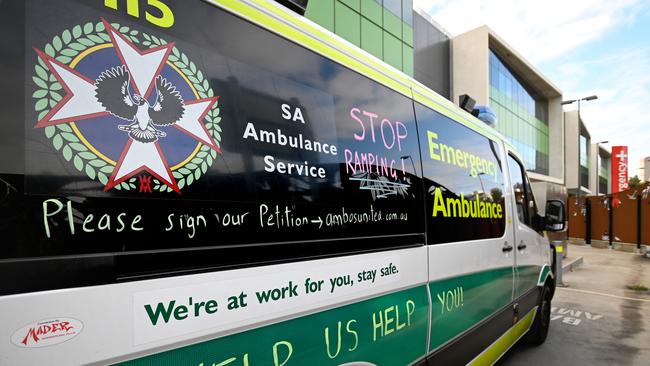Ambulance employees’ ‘case card ban’ industrial action cost taxpayers $4m, SA Employment Tribunal hears
The cost of industrial action taken by ambulance employees in the lead-up to the state election has been revealed.

SA News
Don't miss out on the headlines from SA News. Followed categories will be added to My News.
Paramedics’ refusal to charge patients for ambulance callouts as part of industrial action in the lead-up to the state election likely cost taxpayers more than $4m, the ambulance service says.
The Ambulance Employees Association (AEA) SA was last month ordered by the SA Employment Tribunal (SAET) to stop chalking messages on to ambulances and lift a “case card ban” amid a bitter industrial dispute with the state government.
Under the ban, paramedics had refused to collect patients’ billing information – making it impossible for the government to recoup costs – until the union received a “reasonable” enterprise bargaining offer.
The tribunal heard evidence from Paul Lemmer, SA Ambulance Service (SAAS) interim executive director of operations in the metropolitan area, who said between February 4, when the ban took effect, and March 3, “the total loss of revenue was likely to exceed $4m”.
“Based on the four-week period described, the revenue lost as a result of the case card ban figure is about $140,000 per day,” the SAET judgement said.
In ordering that paramedics resume the normal billing process, the tribunal found the ban came at a “very high cost” to the economy and community, and would not have helped resolve the dispute.

The cost came in addition to the bill for cleaning chalked ambulances, which was calculated at more than $84,000 between July 2021 and January 2022.
AEA general secretary Leah Watkins, who gave evidence in the matter, said under-resourcing has had a significant impact on patients and their families, and the general public.
She said the issue has led to an increase in ramping, but told the tribunal she was not qualified to say whether the revenue lost from case card bans would otherwise have been available to the SAAS to spend on resources.
The tribunal acknowledged “there is a high degree of anger and frustration felt by frontline SAAS employees”, and declined to make a ruling that ambulance employees must stop wearing AEA T-shirts instead of SAAS-issued undershirts.
Health Minister Chris Picton said ambulance officers have been stretched to the limit under worsening conditions, and were doing the best they can with the resources available.
“This speaks to the former government's failure to act and provide the necessary support to our ambos,” he said.
“Our government certainly will ensure our health system has the resources it needs.”
At the time the order was handed down, then-treasurer Rob Lucas said the industrial action was “counterproductive” and the Liberals had increased ambulance staff by almost 300 when compared with the final budget of the last Labor government.





